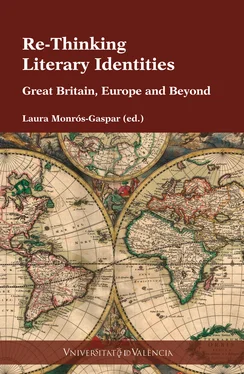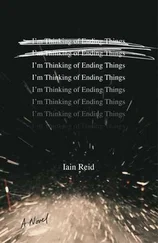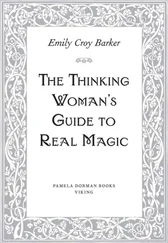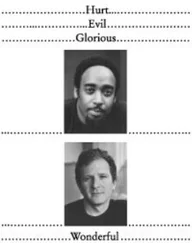AAVV - Re-Thinking Literary Identities
Здесь есть возможность читать онлайн «AAVV - Re-Thinking Literary Identities» — ознакомительный отрывок электронной книги совершенно бесплатно, а после прочтения отрывка купить полную версию. В некоторых случаях можно слушать аудио, скачать через торрент в формате fb2 и присутствует краткое содержание. Жанр: unrecognised, на английском языке. Описание произведения, (предисловие) а так же отзывы посетителей доступны на портале библиотеки ЛибКат.
- Название:Re-Thinking Literary Identities
- Автор:
- Жанр:
- Год:неизвестен
- ISBN:нет данных
- Рейтинг книги:3 / 5. Голосов: 1
-
Избранное:Добавить в избранное
- Отзывы:
-
Ваша оценка:
- 60
- 1
- 2
- 3
- 4
- 5
Re-Thinking Literary Identities: краткое содержание, описание и аннотация
Предлагаем к чтению аннотацию, описание, краткое содержание или предисловие (зависит от того, что написал сам автор книги «Re-Thinking Literary Identities»). Если вы не нашли необходимую информацию о книге — напишите в комментариях, мы постараемся отыскать её.
Re-Thinking Literary Identities — читать онлайн ознакомительный отрывок
Ниже представлен текст книги, разбитый по страницам. Система сохранения места последней прочитанной страницы, позволяет с удобством читать онлайн бесплатно книгу «Re-Thinking Literary Identities», без необходимости каждый раз заново искать на чём Вы остановились. Поставьте закладку, и сможете в любой момент перейти на страницу, на которой закончили чтение.
Интервал:
Закладка:
Maoilios Caimbeul was born in 1944 in Staffin (Stafain), on the northeastern coast of Skye. He learnt to write his own language in his mid-twenties, after several years in the merchant navy. His first book of poems, Eileanan , appeared in 1980. Of all his collections of poetry only his second book, Bailtean/Villages (1987), has been published with English translations. Breac-a’-Mhuiltein/Spéir Dhroim an Ronnaigh: Selected Poems, 1974-2006 was published in Dublin in 2007 with Irish translations by Rody Gorman. His latest collection is Tro Chloich na Sùla (2014). Female characters, allegorical and real, are quite frequent in his work. He has also written prose fiction, especially for children, and educational material. 13
In his ‘Introduction’, Christopher Whyte writes of Fearghas MacFhionnlaigh as the ‘most original’ and ‘in his experimentation with language, the most exciting’ poet in the anthology (xi). Born in 1948 in the Vale of Leven (Magh Leamhna), West Dunbartonshire, he taught himself Gaelic during his teens. His poems blend science and nature, technology and ecology with a daring sense of neologism. He has published three poem sequences: A’ Mheanbhchuileag/The Midge (1980, 1982), Iolair, Brù-Dhearg, Giuthas (1991), and Bogha-Frois san Oidche/Rainbow in the Night (1997). 14
Aonghas MacNeacail was born in 1942 in Uig (Ùige), in northern Skye. He presents himself as a ‘poet and songwriter’, 15 and also ‘broadcaster, journalist, scriptwriter, librettist and translator’. He wrote his first poems in English, but since the late 1970s he has become a figure of reference in Gaelic culture. His individual voice, inspired by American poets like e e cummings and by Philip Hobsbaum’s Writers’ Group in Glasgow—Tom Leonard, James Kelman, Alasdair Gray, Liz Lochhead—is heard with its characteristic repetitions in his first full collection, an seachnadh agus dàin eile/the avoiding and other poems (1986). A Proper Schooling and Other Poems/Oideachadh Ceart agus Dàin Eile was published in 1996, and in 2012 dèanamh gàire ris a’ chloc: dàin ùra agus thaghte/laughing at the clock: new and selected poems . His critical views, in ‘Rage Against the Dying Of…’ (1983), ‘A Long Road to Now: A Snapshot Survey of Gaelic Poetry’ (1994) and on self-translation, ‘Being Gaelic, and Otherwise’ (1998).
Catrìona NicGumaraid was born in Roag (Ròdhag) on the western coast of Skye in 1947, and her sister Mòrag in 1950. Catrìona had been composing Gaelic songs since an early age, and writing poems since her twenties. In 1973 she was the first Writer in Residence ( filidh, sgrìobhadair or Sgrìobhaiche ) at Sabhal Mòr Ostaig, 16 and in 1974 she published her first collection of poetry, A’ Choille Chiar , including poems by Mòrag. Her definitive collection is Rè na h-Oidhche/The Length of the Night (1994). She has also worked as an actress and as a scriptwriter for radio and television. 17
Màiri NicGumaraid was born in 1955 in Arivruaich (Airidh a’ Bhruaich), in the South Lochs (A’ Phàirc) district of Lewis. Her poetry collections Eadar mi ‘s a’ Bhreug (1988), Ruithmean ‘s Neo-Rannan (1997), Rainn agus Neamhrainn (1999) and Fo Stiùir a Faire (2012) have been published in Coiscéim with translations into Irish by Liam Prút and Pádraig Ó Snodaigh. She has also written fiction, and has worked in Lews Castle College and in broadcasting. 18
The editor of this anthology, Christopher Whyte, was born in 1952 in Glasgow. His contribution to Scottish Gaelic poetry has been substantial and innovative, and often controversial, as a poet, translator and scholar. He has translated MacLean into Italian, and his Gaelic translations of Cavafy, Ritsos, Ujević, Mörike, Akhmatova and Tsvetaeva appeared in Gairm and in Thomson 1990. He has also translated into English: Pasolini and other Italian contemporary poets, short stories and poems by Catalan authors (Monzó, Pàmies; Ferrater, Marçal, Comadira), 19 Hungarian poetry, and sequences of poems by Marina Tsvetaeva. As a poet, his first collection was Uirsgeul/Myth (1991), published with his own English translations. In 1996 Bho Leabhar-Latha Maria Malibran/From the Diary of Maria Malibran was published in Gairm , and reprinted in 2009 with English versions by several translators. 20 Other collections have appeared with Irish translation ( Dealbh Athar , 2009) 21 or only in Gaelic ( An Daolagh Shìonach , 2013). 22 His poetry is complex and ambitious: he tends to use long, narrative sequences, interweaving personal expression and the voices and figures of other artists, 23 in an attempt to enlarge the possibilities of Gaelic poetry. As a scholar, he has also edited the work of Sorley MacLean (MacLean 2008 and 2011) and the anthology Dreuchd An Fhigheadair/The Weaver’s Task: A Gaelic Sampler (2007). 24 He is the author, amongst several other influential critical studies, of the seminal Modern Scottish Poetry (2004). For its relevance to my argument in this paper, see his articles ‘Translation as Predicament’ (2000b) and ‘Against Self-Translation’ (2002), which I shall discuss next. He has also written fiction in English, and has lived in Italy, Barcelona, Croatia, and Budapest. 25
The third point of reference is a definitive bilingual anthology of twentieth-century Scottish Gaelic poetry, An Tuil: Duanaire Gàidhlig an 20mh Ceud , first edited by Ronald Black (Raghnall MacilleDhuibh) in 1991. This is a very comprehensive work, which includes an in-depth introduction, a complete selection of poets and poems—translated into English by the poets themselves or by the editor when translations were not available, and a highly informative background section, with notes on poets and poems that provide a wealth of bio-bibliographical detail. 26 Of course all the poets mentioned in this review are present, with Anne Frater’s entry closing the volume. From the other contemporary poets included in the anthology, I choose to add two more names to our shortlist, Angus Peter Campbell (Aonghas P[h] àdraig Caimbeul) and Rody Gorman.
Angus Peter Campbell was born in 1954 in South Boisdale (An Leth Meadhanach), in South Uist (Uibhist a Deas) in the Outer Hebrides. Iain Crichton Smith was his teacher at Oban (An t-Òban) High School. He has worked as a journalist in Gaelic for various media. He has been a lecturer and Writer in Residence at SMO, and also an actor. In 1991 he edited Dàin is Deilbh , 27 a celebration of Sorley MacLean’s 80th birthday. As a prose writer, he has written fiction in Gaelic and in English, both for adults and children. As a poet, his first collection was in English, the second included several poems in Gaelic, and in 2007 he published Meas air Chrannaibh/Fruit on Brainches/Fruit on Branches , with his own English translation and a Scots version by J. Derrick McClure. His next volume, Aibisidh , appeared in 2011 with his parallel English translations. 28
Rody Gorman was born in Dublin in 1960, and has lived in Scotland since 1987. He has been Writer in Residence at Sabhal Mòr Ostaig, University College Cork and University of Manitoba, Scottish Writing Fellow at PROGR in Berne, and has held advisory posts in several official institutions. He writes and translates in and between Irish and Scottish Gaelic, and English. His first collection of poems in Scottish Gaelic, Fax and Other Poems , was published in 1996. Chernilo (2006) is a selection of his poetry in Irish and Scottish Gaelic, including new poems. In 2011 he published Beartan Briste agus dàin Ghàidhlig eile/Burstbroken Judgementshroudloomdeeds and Other Gaelic Poems , where he uses playfully the space for the conventional English translation. 29 He has translated into Scottish Gaelic poems by Cavafy, Yeats, Prévert, Neruda, Kavanagh, Holan, Milosz, Rósewicz, Larkin, Popa, Holub, Aspenstrom, Snyder, Issa, Basho, Busson, Longley and Armitage. His English translations include poems by Donald MacAulay, Sorley MacLean and Iain Crichton Smith. Between Irish and Scottish Gaelic, poems by Máirtín Ó Direáin, Sorley MacLean, Seán Ó Ríordáin, Derick Thomson, Seán Ó Tuama, Iain Crichton Smith, Donald MacAulay, Myles Campbell, Aonghas MacNeacail, Gabriel Rosenstock, Michael Davitt, Liam Ó Muirthile, Nuala Ní Dhomhnaill, and Meg Bateman. He has also edited the seven issues of An Guth —anthologies of Irish and Scottish Gaelic poetry published by Coiscéim from 2003 to 2012. 30
Читать дальшеИнтервал:
Закладка:
Похожие книги на «Re-Thinking Literary Identities»
Представляем Вашему вниманию похожие книги на «Re-Thinking Literary Identities» списком для выбора. Мы отобрали схожую по названию и смыслу литературу в надежде предоставить читателям больше вариантов отыскать новые, интересные, ещё непрочитанные произведения.
Обсуждение, отзывы о книге «Re-Thinking Literary Identities» и просто собственные мнения читателей. Оставьте ваши комментарии, напишите, что Вы думаете о произведении, его смысле или главных героях. Укажите что конкретно понравилось, а что нет, и почему Вы так считаете.










